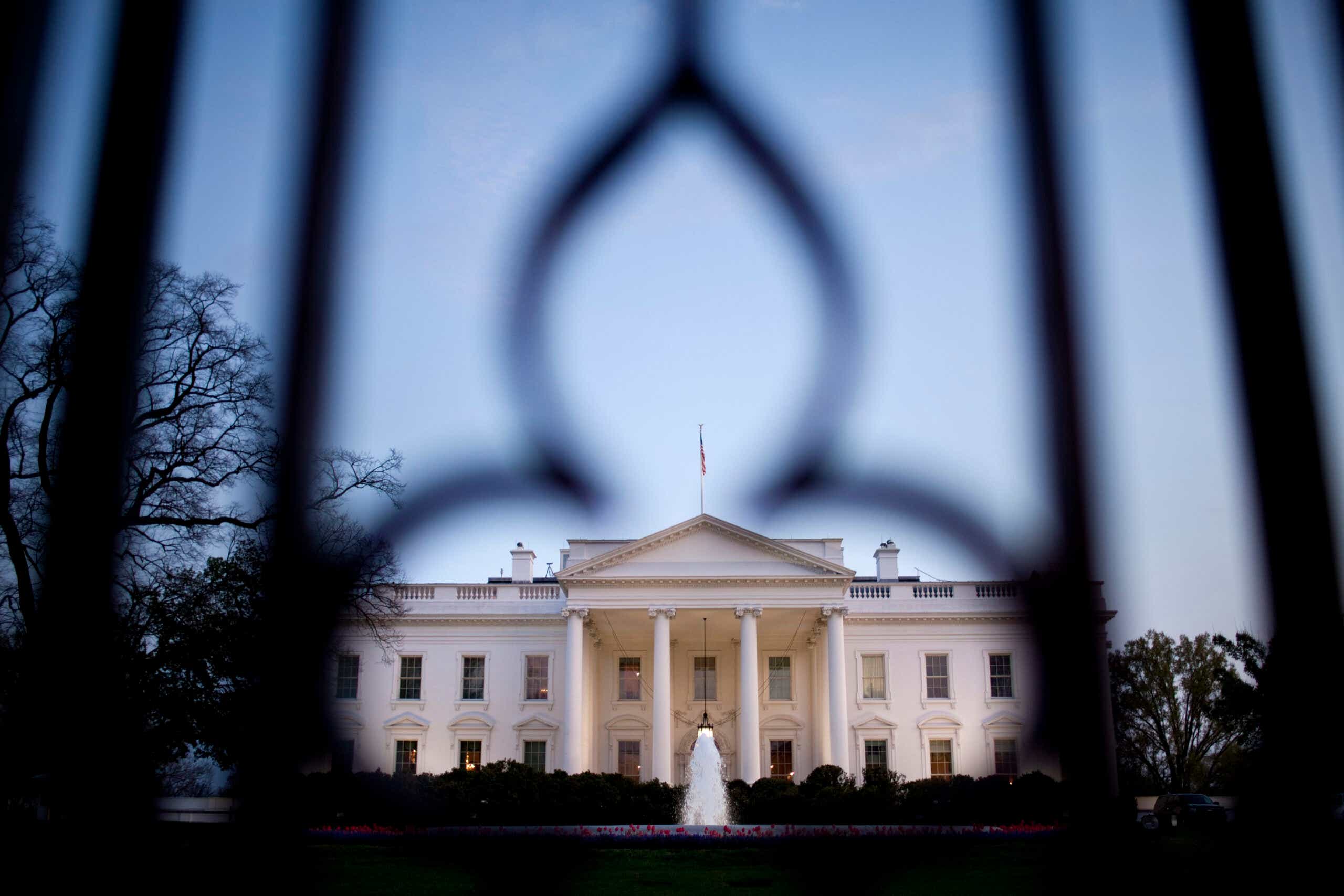Max Stier, who leads an advocacy group that helps aid presidential transitions, says a peaceful transfer of power is not only a core process of our democracy — it’s also crucial for our national security.
President Trump’s denial of his election defeat has highlighted an often overlooked core process of U.S. democracy — the presidential transition, according to Stier, the president and CEO of Partnership for Public Service.
“The transition is one of these really core processes to our democracy that hasn’t received much attention,” Stier told Wake-Up Call.
Stier warned that a tumultuous transfer of power could pose serious consequences to the country’s national security, pointing to the rocky transition between Bill Clinton and George W. Bush in 2000 as a prime example. The Florida recount and subsequent Supreme Court case delayed the final result by more than 30 days, halving the normal transition period. The 9/11 Commission Report later found that this loss of time made the Bush administration less prepared to deal with the Sept. 11, 2001 terrorist attacks.
“The reality is we live in a dangerous world that, as 9/11 showed us, anything can happen and whoever’s in charge needs to be ready for that,” he said.
Recognizing how critical it was to have a peaceful transfer of power, the Partnership for Public Service created the Center for Presidential Transition in 2016. The nonpartisan organization aids presidential candidates on both sides of the aisle to lay the groundwork for a new administration or for a president’s second term. In addition to providing advice and assistance, it offers a 250-page guidebook outlining how to go about transition planning.
The center also said it has played an active role in helping with Biden’s transition just as it had with Trump in 2016 and previous presidents-elect. A day after media outlets declared Biden as the president-elect, the center’s advisory board issued a statement, urging the Trump administration to begin the post-election transition process.
“While there will be legal disputes requiring adjudication, the outcome is sufficiently clear that the transition process must now begin,” they wrote.
But so far, the president has refused to concede the presidential election over unsubstantiated claims over voter fraud. Consequently, this has hampered the traditional transition process. The General Services Administration (GSA) head Emily Murphy has yet to acknowledge Biden’s win, preventing access to key services and funding. Meanwhile, the State Department is blocking the president-elect from accessing messages from foreign leaders.
While many Republicans have yet to acknowledge Biden’s victory, a growing number of GOP senators have called for the president-elect to have access to the sort of intelligence briefings that will help him hit the ground running in January.
“I would think, especially on classified briefings, the answer is yes,” Sen. Chuck Grassley (R-Iowa) said when asked if Biden should get briefings.
Despite this pushback, Stier said Biden’s transition team, which includes Ted Kaufman, who previously served on the Center for Presidential Transition’s advisory board, has been “very effective.”
This is no small feat given that transition to a new presidential term is a massive undertaking. To build an effective government ready to address the urgent needs of our great country, the agency said the president must successfully recruit 4,000 political appointees, including 1,250 who require Senate confirmation; prepare a $4.7 trillion budget; implement a strong policy agenda; and assume leadership of a workforce of two million civilian employees and two million active duty and reserve troops.
With just two months before Biden is set to take office, Stier said “every day matters.”
“It’s one of those things where you can’t say, if you don’t do it by this date, everything falls apart, it all just makes it harder,” he said in response to concerns over the transition process being impeded.
Constitutional law expert Kent Greenfield emphasized that the president doesn’t need to necessarily concede for Biden to take office, saying such an action is “a norm, not a law.” But at the very least, Greenfield said it requires the GSA to formally recognize Biden as the president-elect to allow for the transfer of power to begin.
Greenfield also warned that while the president’s actions are repairable they could have a lingering effect, predicting that “history will be a harsh judge.”
“I really think that what Donald Trump was doing is causing harm,” he said. “I don’t think it’s going to end up being that Donald Trump stays president, but I do think that the damage to the country will exist.”
This story was written and reported by Tess Bonn.









